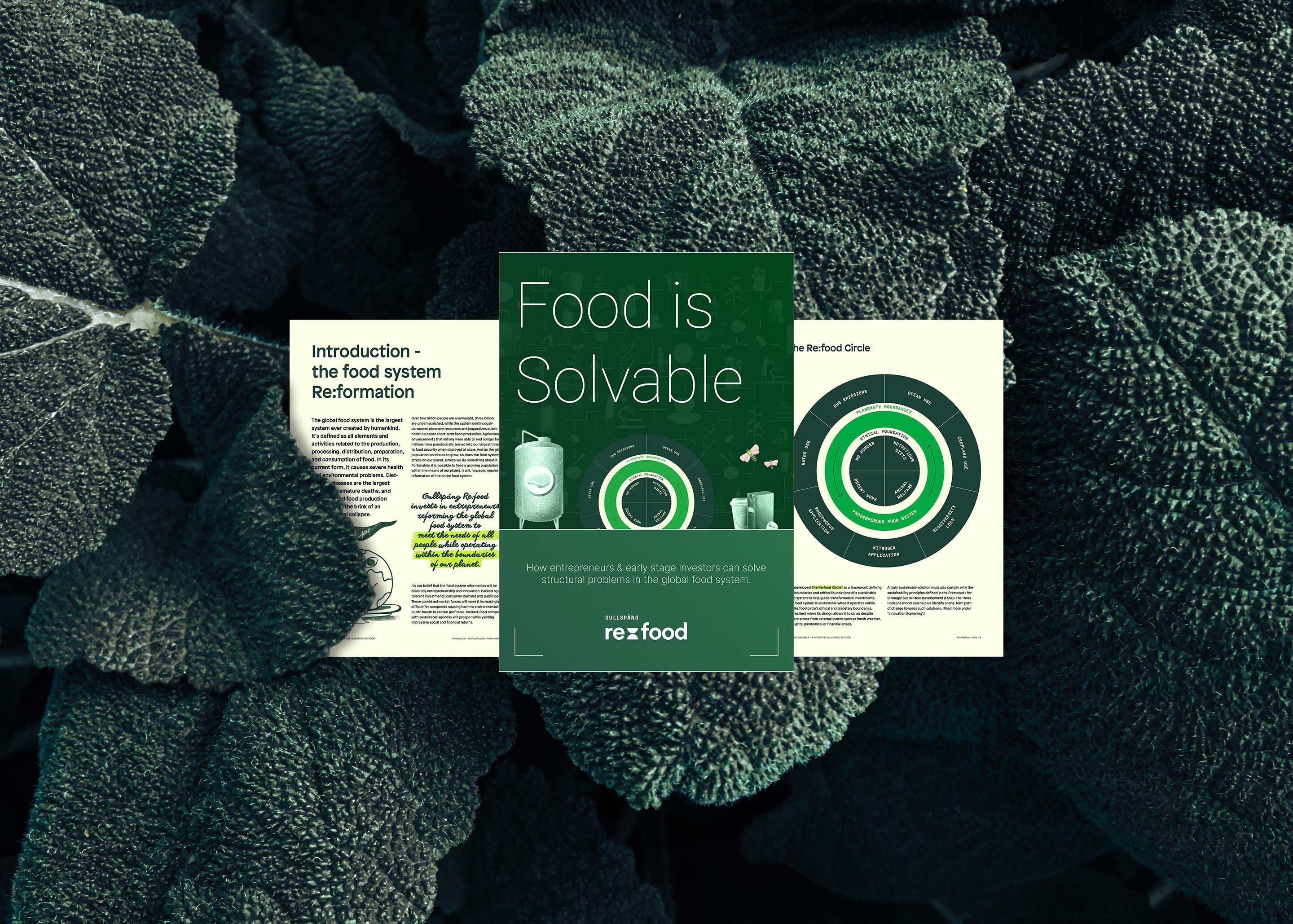Planted
Planted is changing how we eat with its juicy, tender, plant-based, and clean-label alternatives to meat.



Our generation's greatest business opportunity is to mend the food system for future ones
Our cheap calories come at a steep price. With the population growth there is an increasing number of mouths to feed. Still, food production is already the primary contributor to greenhouse gas emissions, deforestation, loss of species, and soil degradation. The equation doesn’t add up, but it’s solvable.
Bold entrepreneurs with transformative innovations have started the redesign of our food system into a biodiverse carbon sink feeding the billions with nutritious food. The outcome is resilience, regeneration, and abundance. We invest in category defining companies driving the reformation of the global food system.


Our investment themes build upon the work of Stockholm Resilience Center and EAT-Lancet, and the required shifts they’ve identified to bring the global economy back to a safe operating space. Our portfolio companies are producing more with less, repurposing waste, replacing linearity with circularity, regenerating soil, and enabling access to nutritious food for everyone.

Planted is changing how we eat with its juicy, tender, plant-based, and clean-label alternatives to meat.

Matsmart/Motatos is the leading European discount food store online, saving products that would otherwise have been wasted.
.png)
Agreena provides a global AgTech platform supporting the regenerative farming transition to scale carbon removals.

Nick's is a health revolution disguised as irresistible temptations, bridging the gap between healthy and cravable.

Mission Barns makes real meat without harm, using cultivators that mimic the animals' bodies.

Through superior products and clever marketing, Oatly is leading the plant-based revolution. It's like milk but made for humans.

The production of synthetic ammonia, a precursor to nitrogen fertilizer, produces two tons of carbon dioxide equivalent per ton of usable ammonia and is responsible for 1-2% of global greenhouse gas emissions. At the same time, greening this production process could benefit industries beyond agriculture. However, there are negative impacts associated with nitrogen fertilizers that green ammonia does not address, and we must be cautious that ammonia production doesn’t become a red herring in the sustainable fertilizer transition. We dug into the green ammonia space and summarized our key findings and takeaways.

Pollinators are essential to the food system, but modern agricultural practices threaten wild pollinators and domesticated honeybees alike. Innovative startups are addressing this with smart technologies in an attempt to guarantee our future food supply. But do any of these innovations hold promise? We did a deep dive to find out. Read on for some more background information, three insights from our research, and our thoughts on the future of pollination.

When pioneering startups secure backing from seasoned, long-term investors with experience in crafting robust businesses, they have the potential to reshape entire value chains radically and become category leaders in a more sustainable industry. When those same investors build an investment approach that incorporates deep research and systems thinking, and invest in companies at multiple systemic leverage points, they have the potential to transform entire industries and even the global economy.